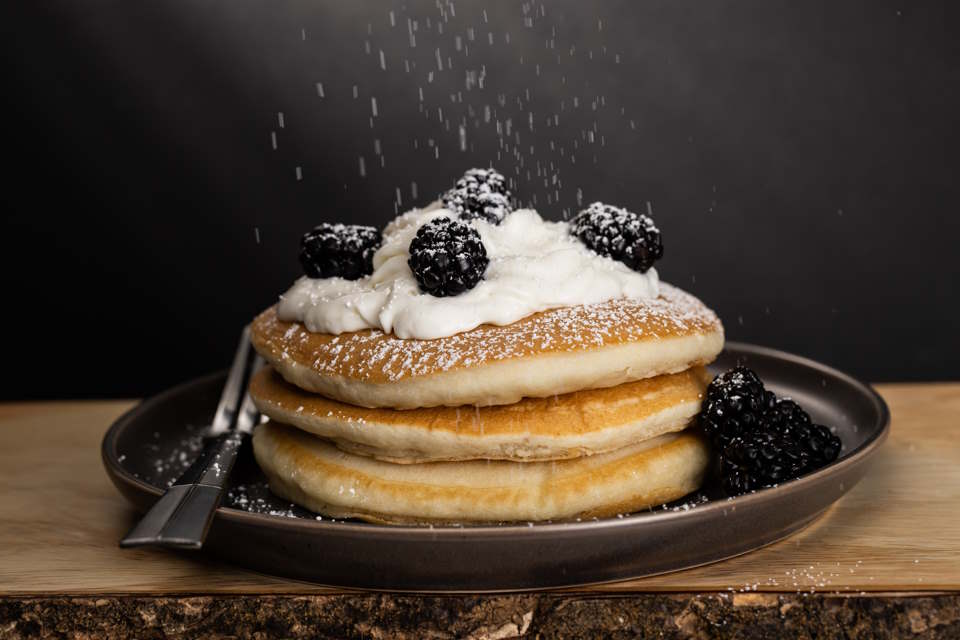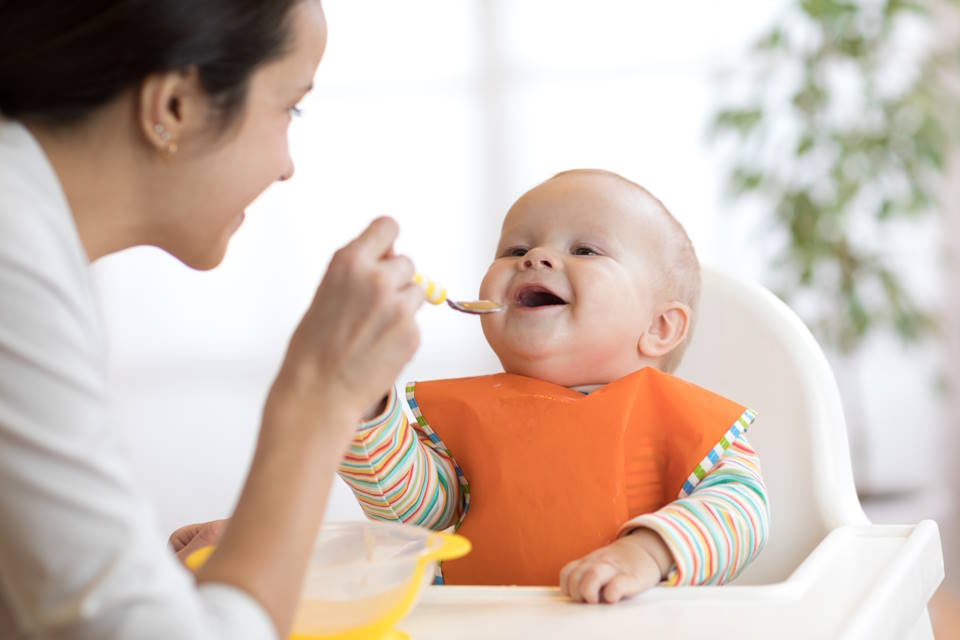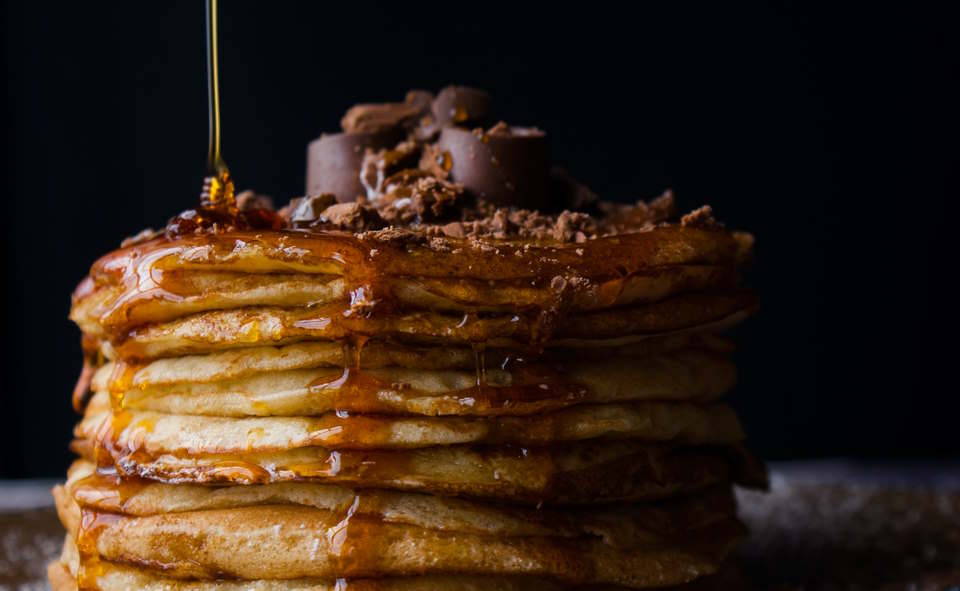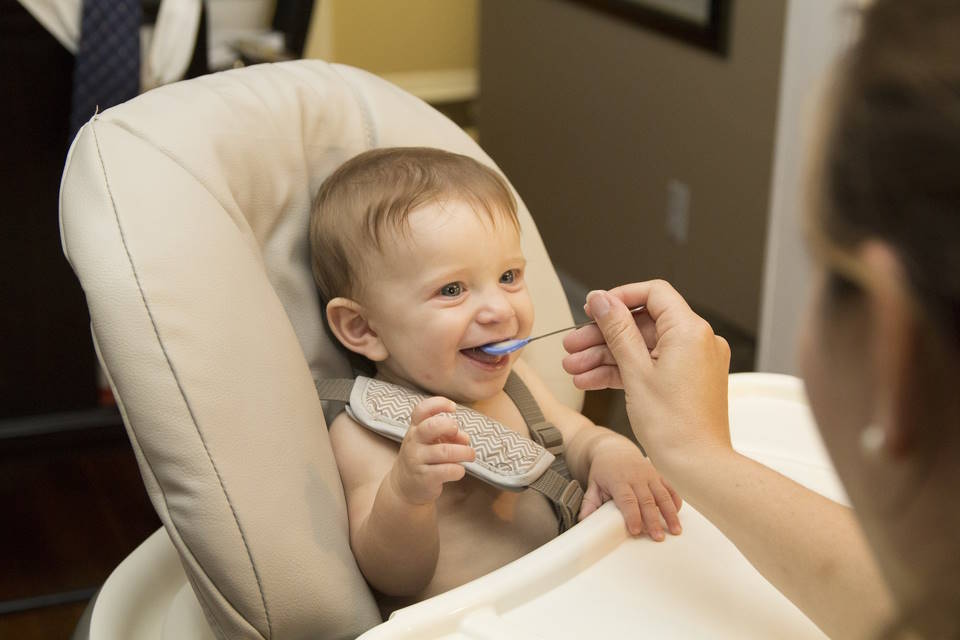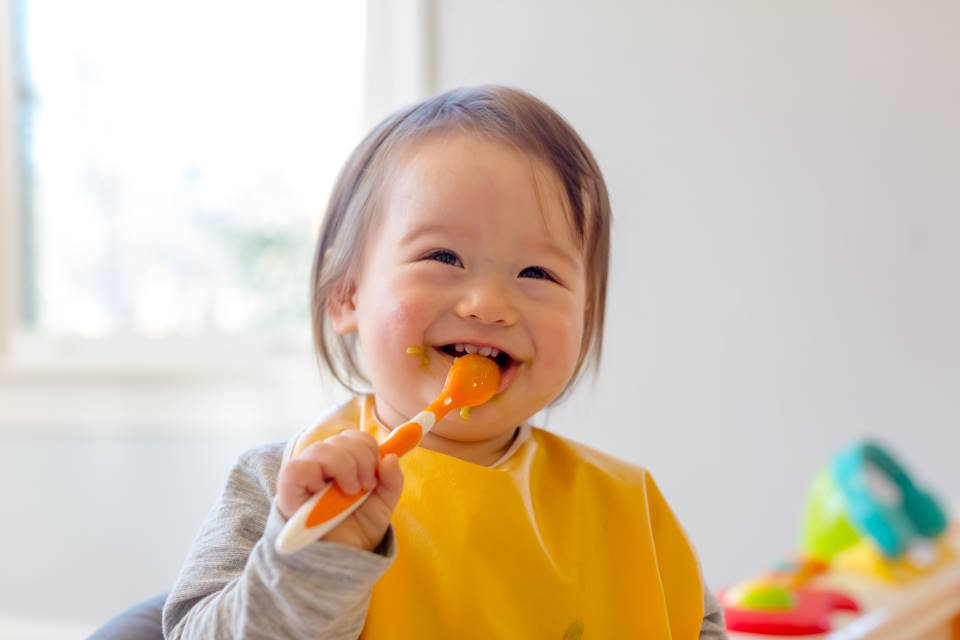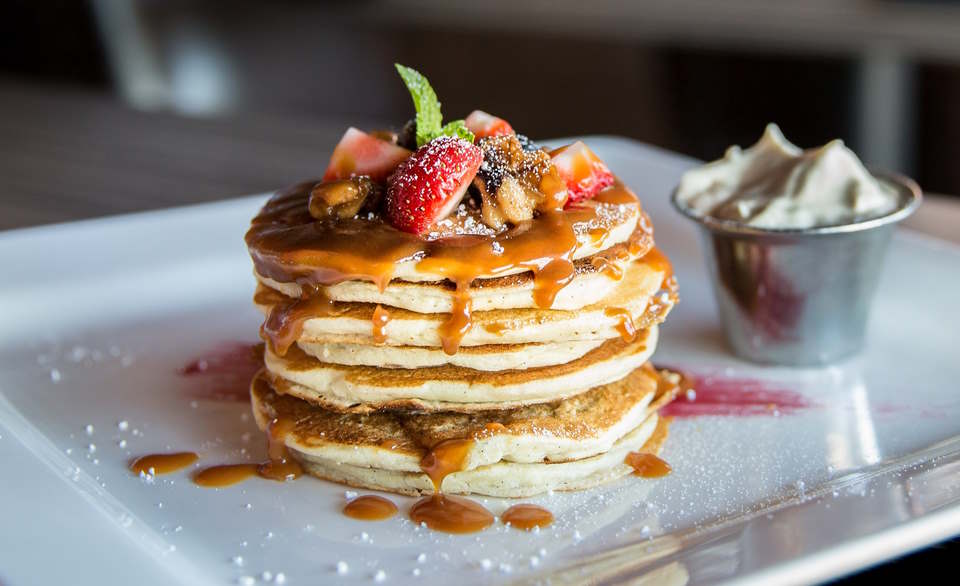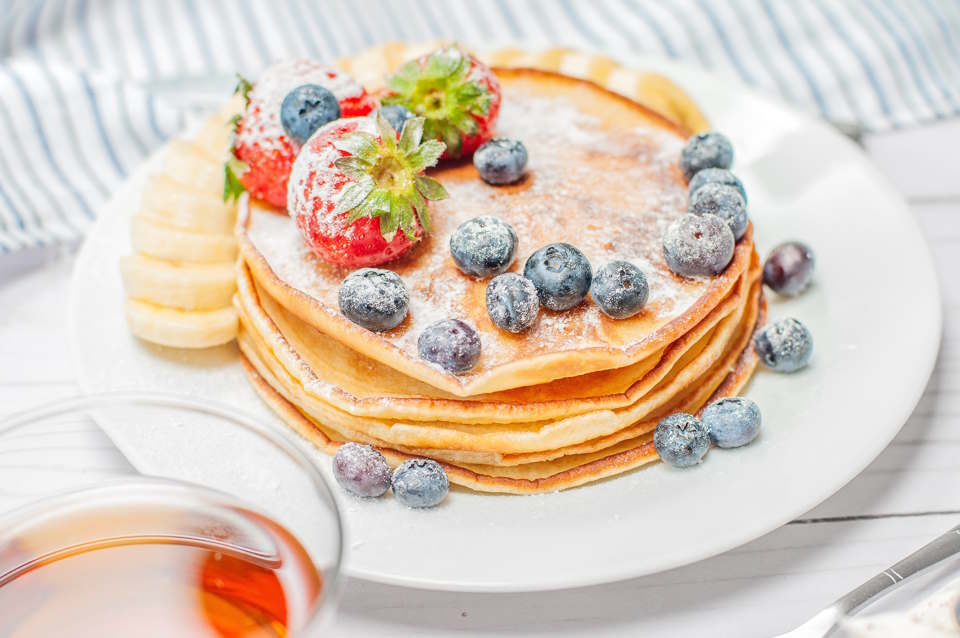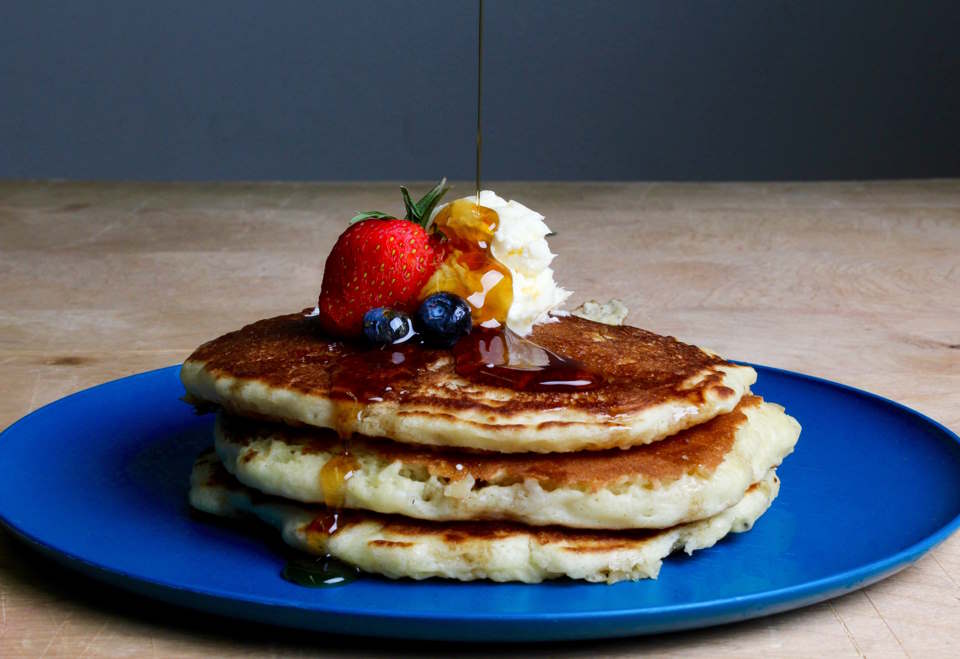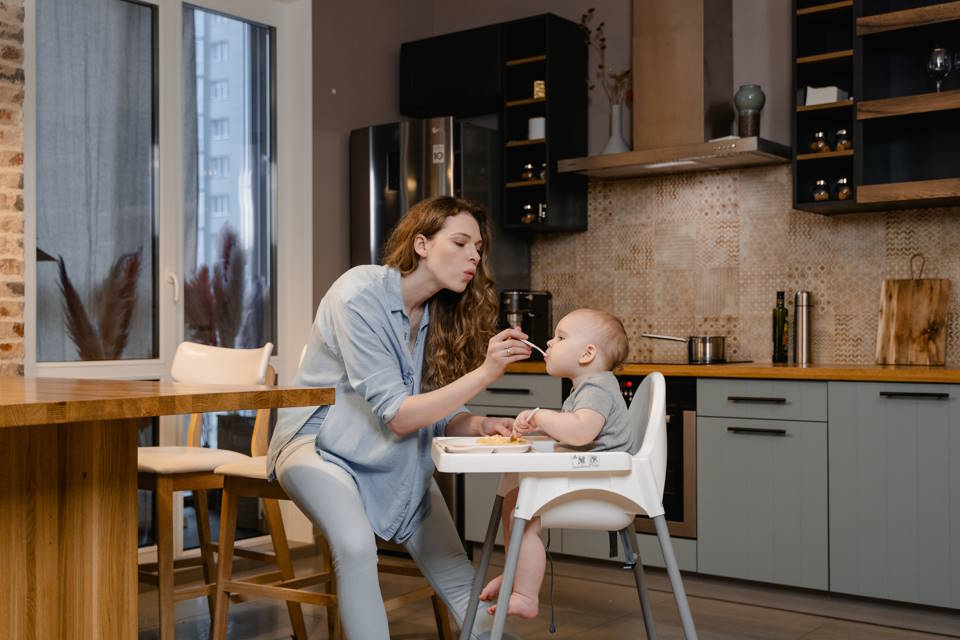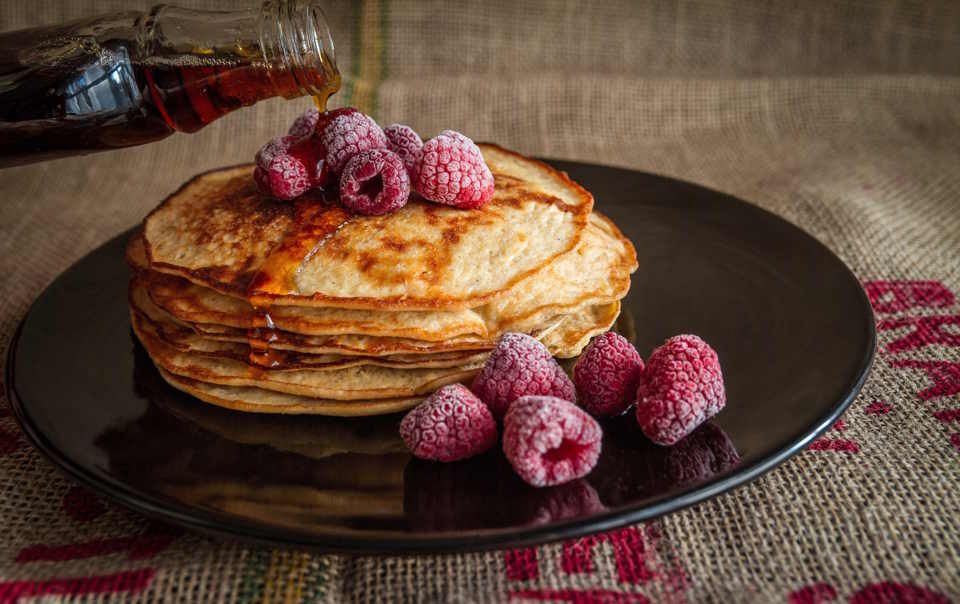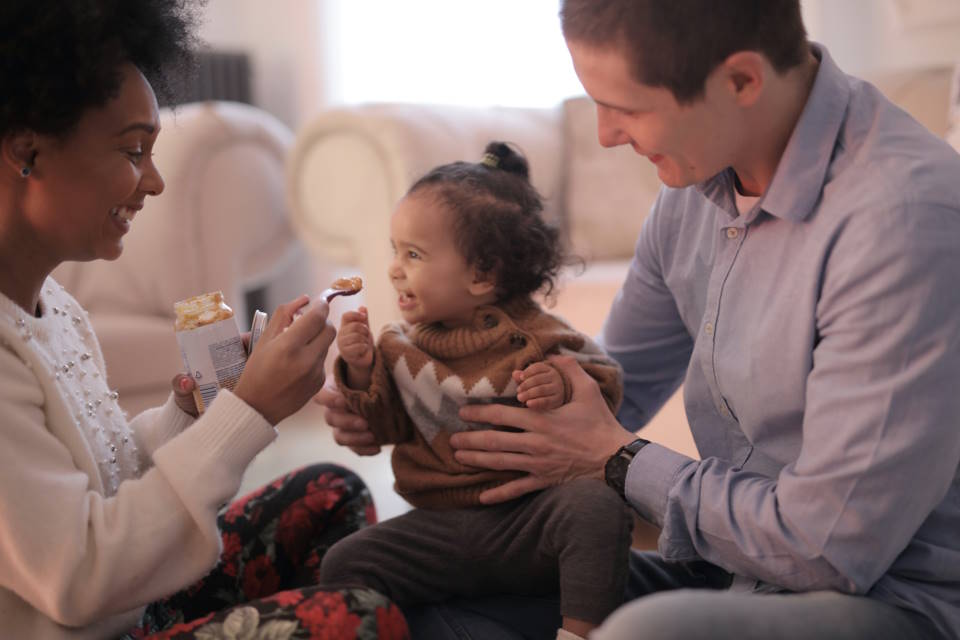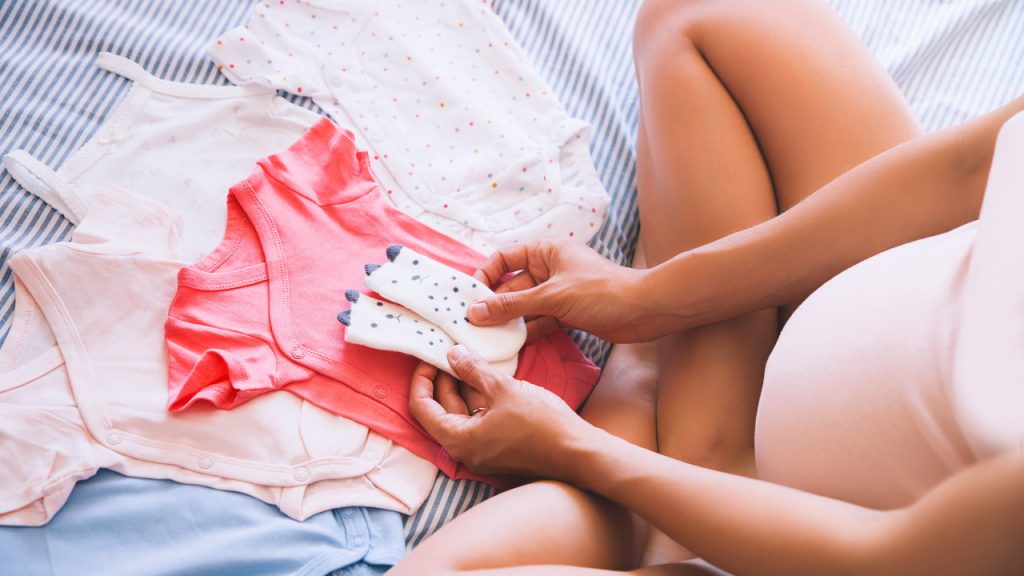As parents, we all want our babies to have a well-balanced diet and taste different foods. Pancakes are a popular breakfast food and a great option for babies as well. However, as with any new food, it’s important to introduce pancakes to your baby in the right way. We will answer some common questions like can babies eat pancakes, at what age can babies eat pancakes, how should babies eat pancakes, can babies have pancakes with syrup, is butter ok for babies, and why can’t babies have honey. Keep reading to know more!
Introduction
Many parents wonder whether their babies can eat pancakes. It is important to know that babies have specific dietary needs, and their digestive system is not as developed as adults’. Therefore, introducing solid foods to babies should be done gradually, with attention paid to their reactions and tolerance levels.
The American Academy of Pediatrics recommends waiting until babies are at least 6 months old before introducing solid foods. Starting with cereals and pureed fruits and vegetables is a good idea, as these foods are easy to digest and offer a range of important nutrients. Once babies are comfortable with these foods, parents can start introducing more complex flavors and textures.
- When it comes to pancakes, it is best to wait until babies are at least 8-10 months old before offering them. Pancakes are not nutritionally dense and can be high in sugar and fat. Therefore, they should not replace other important foods in a baby’s diet, such as breast milk or formula.
- If parents decide to introduce pancakes to their babies, it is recommended to offer small pieces or bites at a time. This can help prevent choking hazards since pancakes can be softer and mushier than other solid foods.
It is important to note that adding syrup or butter to pancakes can increase their sugar and fat content, which may not be suitable for babies. If parents decide to add these toppings, it is recommended to do so sparingly or to avoid them altogether.
At What Age Can Babies Eat Pancakes?
When it comes to introducing solid foods to babies, parents are often curious about when they can start offering certain foods. Pancakes may seem like a fun and easy breakfast option, but many parents wonder at what age can babies eat them.
The American Academy of Pediatrics recommends that babies start eating solid foods around 6 months of age. However, every baby is different and some may be ready to start as early as 4 months old. It’s important to pay attention to your baby’s developmental cues and consult with your pediatrician before introducing any new foods.
- One important thing to keep in mind is that pancakes should not replace breast milk or formula as the main source of nutrition for babies.
- When starting to introduce pancakes, it’s important to offer small pieces that are easy for babies to chew and swallow.
- Babies may enjoy pancakes with mashed fruit or yogurt as a topping instead of syrup, which can be high in sugar.
It’s also important to note that pancakes made with whole wheat flour or oatmeal can provide some nutritional benefits for babies. These types of pancakes offer fiber, vitamins, and minerals that can help support a baby’s growth and development.
| Do: | Don’t: |
|---|---|
| Offer small pieces of pancakes | Give whole pancakes or large pieces that can be a choking hazard |
| Offer pancakes made with whole wheat flour or oatmeal | Give pancakes made with refined flour, which have less nutritional value |
| Offer pancakes with mashed fruit or yogurt as a topping | Give syrup or other high-sugar toppings |
How Should Babies Eat Pancakes?
Babies are constantly growing and developing, which means their nutritional needs are constantly changing as well. It’s important for parents to know what foods are appropriate for their little ones and how to prepare them safely. One popular breakfast item parents often ask about is pancakes.
Since pancakes can be a choking hazard for babies, it’s important to prepare them in a way that is safe for little ones to eat. Cut the pancakes into small pieces or strips and avoid adding any hard or crunchy toppings. For added nutrition, consider topping the pancakes with mashed fruit or natural nut butter instead of syrup, which can be high in sugar.
- Use whole grain flour
- Avoid refined sugar
- Introduce after single-ingredient foods
- Cut pancakes into small pieces or strips
- Avoid hard or crunchy toppings
- Consider topping with mashed fruit or natural nut butter instead of syrup
Remember to always supervise your baby while they are eating and consult with their pediatrician before introducing any new foods to their diet. With proper preparation, pancakes can be a tasty and nutritious breakfast option for babies!
Can Babies Have Pancakes With Syrup?
Many parents are eager to introduce a variety of new foods to their babies as they grow. One popular breakfast food that many parents wonder about is pancakes. While pancakes can be a tasty and filling breakfast option, many parents are unsure if they are safe for babies to eat or not. In particular, the question of whether babies can have pancakes with syrup often arises.
The good news is that babies can indeed have pancakes with syrup. Pancakes can be a healthy and nutritious food for babies, as long as they are served in an appropriate portion size and with healthy additions. Whole wheat pancakes made with mashed bananas or unsweetened applesauce can be a great option that provides fiber, vitamins, and minerals. Serving pancakes with fresh fruit or yogurt can further up their nutritional value.
- When introducing pancakes to babies, it is important to consider their age and any potential allergies or sensitivities they may have.
- For babies under one year old, it is best to avoid using whole milk or honey in pancake recipes. Whole milk can cause digestive issues and honey can potentially lead to infant botulism, a rare but serious illness.
If your baby has a known allergy or sensitivity, be sure to tailor the pancake recipe to their individual needs. For example, if your baby is allergic to eggs, consider using a flax or chia egg substitute instead. If your baby has a sensitivity to gluten, try using a gluten-free flour blend.
| Ingredients: | Instructions: |
|---|---|
| 1 cup of whole wheat flour | 1. In a large mixing bowl, combine flour, baking powder, and salt. |
| 1 tsp baking powder | 2. In a separate bowl, whisk together egg, milk, mashed banana, and vanilla extract. |
| 1/4 tsp salt | 3. Add the wet ingredients to the dry ingredients and stir until just combined. |
| 1 large egg | 4. Heat a non-stick pan over medium heat and spray with cooking spray. |
| 1 cup of unsweetened almond milk or breast milk | 5. Use a 1/4 cup measure to pour batter onto the hot pan. Cook until bubbles form on the surface, then flip and cook for another 1-2 minutes. |
| 1 ripe mashed banana | 6. Serve pancakes with fresh fruit and a drizzle of pure maple syrup. |
| 1 tsp of vanilla extract |
When serving pancakes to babies, avoid adding excessive amounts of syrup or butter. While a small amount of pure maple syrup or a pat of butter can be a tasty addition, it is important to keep added sugars and saturated fats to a minimum in babies’ diets. By following these guidelines, parents can safely and confidently serve pancakes with syrup to their babies as a healthy and tasty breakfast option.
Is Butter Ok for Babies?
Many parents are concerned about whether introducing butter to their baby’s diet is safe. Butter is mostly made up of fat, and while fat is an important part of a baby’s diet, it’s essential to ensure that they’re getting the right type of fat in the right amount. So, is butter okay for babies to eat?
The short answer is yes, butter is safe for babies in moderation. As long as your baby is over six months old and has started eating solids, they can have butter. However, it’s important to limit the amount of butter you give your baby to a small amount at a time. Too much butter can cause diarrhea and lead to weight gain, which can be harmful to your baby’s health.
When introducing butter to your baby, make sure you:
- Start with a small amount of butter and see how your baby reacts to it.
- Use unsalted butter as much as possible. Salted butter can have a negative impact on your baby’s health.
- Use organic butter or butter from grass-fed cows if possible. This type of butter is better for your baby’s health than other types.
While butter is okay for babies in moderation, you should also remember to introduce your baby to a variety of different foods to ensure they’re getting all the nutrients they need. Make sure your baby’s diet is balanced with fruits, vegetables, lean protein, and healthy fats.
| Pros | Cons |
|---|---|
|
|
Why Can’t Babies Have Honey?
Honey is a popular sweetener that has been used for centuries in different cultures and countries. It is a natural source of energy and also has medicinal properties. However, many parents may wonder why honey is not recommended for babies under one year of age. The simple answer is that honey can cause infant botulism.
Botulism is a rare but serious illness caused by a toxin produced by the bacterium Clostridium botulinum. This toxin affects the nervous system and can lead to muscle weakness, breathing difficulties, and even death. Most cases of infant botulism are caused by bacteria spores that are found in soil, dust, and honey.
- It is important to note that botulism spores can be found in honey
- The digestive system of babies under one year of age is not fully developed
- These spores can grow and produce toxin in the intestines of babies
Therefore, it is crucial to avoid giving honey to babies under one year of age. The American Academy of Pediatrics and the World Health Organization both recommend avoiding honey until infants are at least one year old. It is also important to note that pasteurization of honey does not guarantee the absence of botulism spores.
Some parents may wonder if honey can be used as a natural remedy for coughs and colds in babies. However, it is important to note that there is no evidence to support this claim. In fact, giving honey to a baby with a cough or cold may increase the risk of infant botulism.
In summary, babies under one year of age should not be given honey due to the risk of infant botulism. It is important to follow this guideline to ensure the safety and health of your baby. If you have any concerns or questions about your baby’s nutrition, consult your pediatrician for advice.

